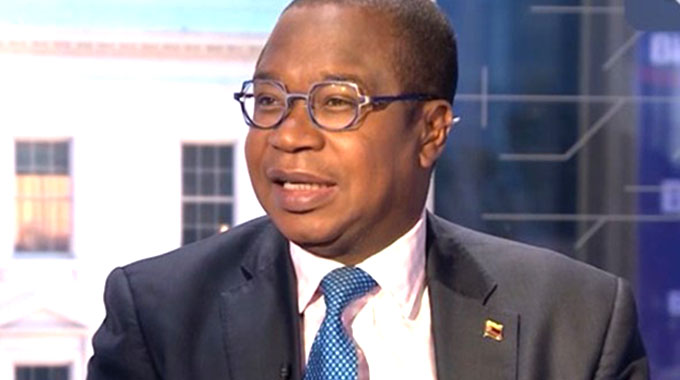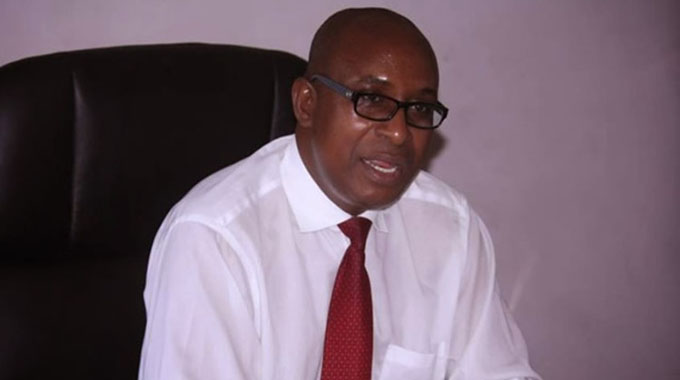Incentives to lure investors to Vic Falls bourse dangled

Business Reporter
The Government yesterday announced incentives aimed at attracting offshore capital on the Victoria Falls Securities Exchange (VFSE) to be launched soon.
These include exception from certain taxes including capital gains and withholding tax on disposal of shares as well as corporate income tax, Finance and Economic Development Minister Professor Mthuli Ncube said.
“The 2019 National Budget Statement highlighted Government’s intention to set up an Offshore Financial Services Centre (OFSC) as part of efforts to develop the financial services sector, through provision of opportunities for global investment,” said Prof Ncube while presenting 2020 Fiscal Review statement.
“The Victoria Falls Special Economic Zone has created an opportunity to set up the VFEX OFSC, as a subsidiary of the main board of the Zimbabwe Stock Exchange.”
The VFEX will be operated from the central business district of the resort town, and would seek to partner any exchanges or international investment banks.
“Foreign investment is required to close funding gaps required to resuscitate the economy in targeted sectors of mining, tourism, agriculture (tobacco), and horticulture,” said the minister without providing specific time-frame on the exchange will open.
The exchange will be similar to offshore financial centres in Africa such as one in Mauritius.
Globally, such centres are found in Ireland, the Caribbean, Luxembourg, Singapore, Hong Kong and the Netherlands.
Minister Ncube said the tax incentives would create confidence in the operation of the offshore financing centre and attract capital across the globe.
Victoria Falls has been designated as a hub for tourism and financial services under the Special Economic Zones initiative with a view of attracting tourists as well as luring investment through tourism.
On another note, the minister said Zimbabwe’s economy will contract by 4,5 percent in 2020, down from the earlier predicted 3 percent growth, mainly choked by the Covid-19 pandemic.
The contraction is despite the fact that the country will once again end the year with a positive current account balance.
Prof Ncube opted not to present a supplementary budget, saying ministries had to date only utilised about 46 percent of their 2020 budget allocations.
He said the economy could have contracted by a higher figure had it not been for government intervention and support from development partners.
Besides Covid-19, which is slowly peaking in the country with over 1 000 infections and 20 deaths to date, Zimbabwe’s economy was already grappling with effects of a devastating drought.
“A combination of Government intervention and external development support in mitigation of the Covid-19 pandemic is expected to alleviate deeper contraction of the economy to a projected minus 4,5 percent in 2020, against the initial Budget projection of three percent growth,” Prof Ncube said.
“In the absence of the above stimulus package and assuming prolonged and severe impact of the crisis, the economy would contract severely.”
The Government provided over $20 billion to various sectors of the economy hit by the coronavirus, for working capital purposes.
Multilateral institutions such as the African Development Bank have projected that Zimbabwe’s economic performance will dip by more than six percent this year.
Economic performance had specifically been weighed down by output losses in mining, manufacturing and agriculture, with exports impacted by Covid-19.
“Prices of most minerals (nickel, copper, chrome, coal and cotton) except for gold and rhodium have weakened since the pandemic was first reported amid weaker global demand. Gold has, however, benefitted from safe haven demand,” Ncube said.
The economy would rebound, with a 7,4 GDP growth in 2021 on the back of strategies that government is putting in place. Prof Ncube said the country will record a current account surplus of US$1,2 billion, up from US$900 million last year.
“The anticipated surplus is also on account of measures on containing non-essential consumptive imports,” he said.
Prof Ncube said in terms of revenue collection government, had to date collected $34 billion against the annual target of $$58,6 billion.








Comments